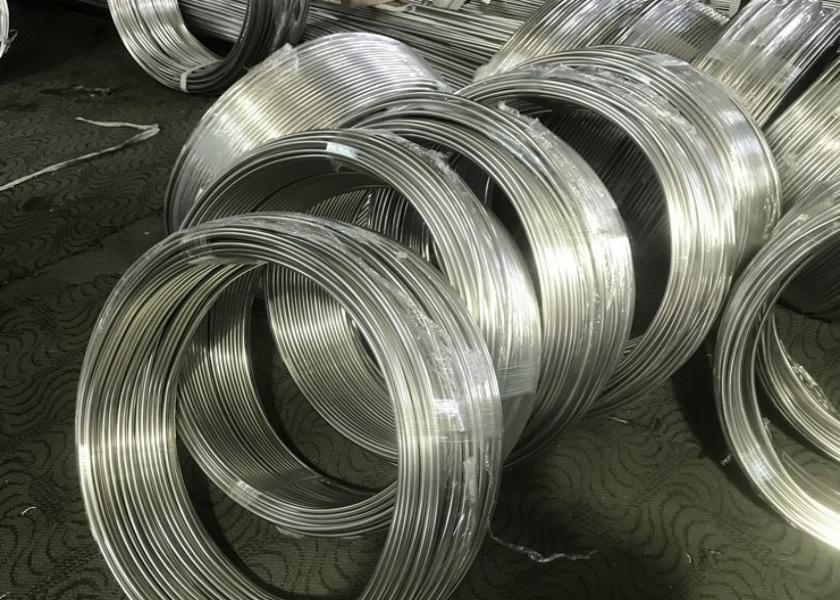Stainless Steel 316 Coil Tube Chemical Composition
Accordin to the Stainless Steel 316 Coil Tube Manufacturer, the chemical composition of stainless steel 316 coil tube is as follows: Carbon – 0.08%, Manganese – 2.00%, Phosphorus – 0.045%, Sulfur – 0.030%. Its other elements include Chromium (16-18%), Nickel (10-14%), Molybdenum (2-3%), and Nitrogen (-0.1%).
|
Grade
|
Chromium
|
Nickel
|
Carbon
|
Magnesium
|
Molybdenum
|
Silicon
|
Phosphorus
|
sulfur
|
|
316
|
16 – 18
|
10 – 14
|
0.03
|
2
|
2 – 3
|
1
|
0.045
|
0.030
|
Stainless Steel 316 Coil Tube Mechanical Properties
Stainless Steel 316 coil tube is a type of stainless steel that has been alloyed with molybdenum and nickel in order to improve its resistance to corrosion and pitting. It has excellent mechanical properties, including high strength, toughness, and ductility making it the perfect choice of Stainless Steel 316 Coil Tube Manufacturer.
|
Material
|
Temperature
|
Tensile Strength
|
Yield Strength
|
Elongation
|
|
316
|
1900
|
75
|
30
|
35
|
Properties of Stainless Steel 316 Coil Tube
Stainless steel 316 coil tube possesses a number of sought-after properties, including:
- Strength: The tensile strength of stainless steel 316 is 620 MPa, making it strong enough to withstand heavy loads.
- Ductility: This material also has good ductility, meaning that it can be stretched or deformed without breaking. This allows it to be easily formed into different shapes.
- Elasticity: Stainless steel 316 coil tube maintains its shape well when subjected to stress or strain, meaning that it can return to its original form after being deformed. This property enables it to absorb impacts without suffering damage.
